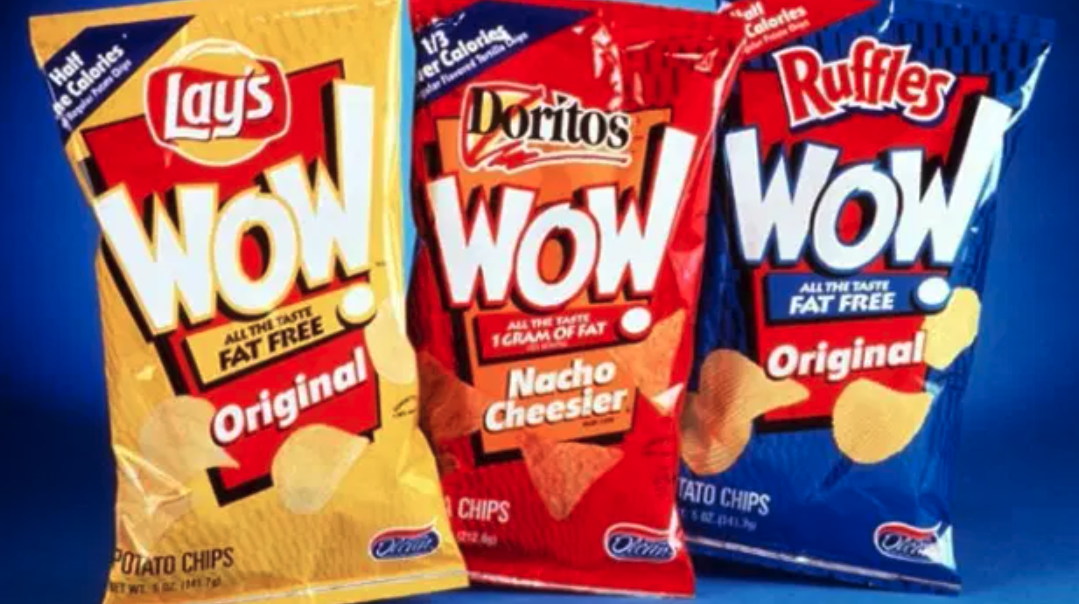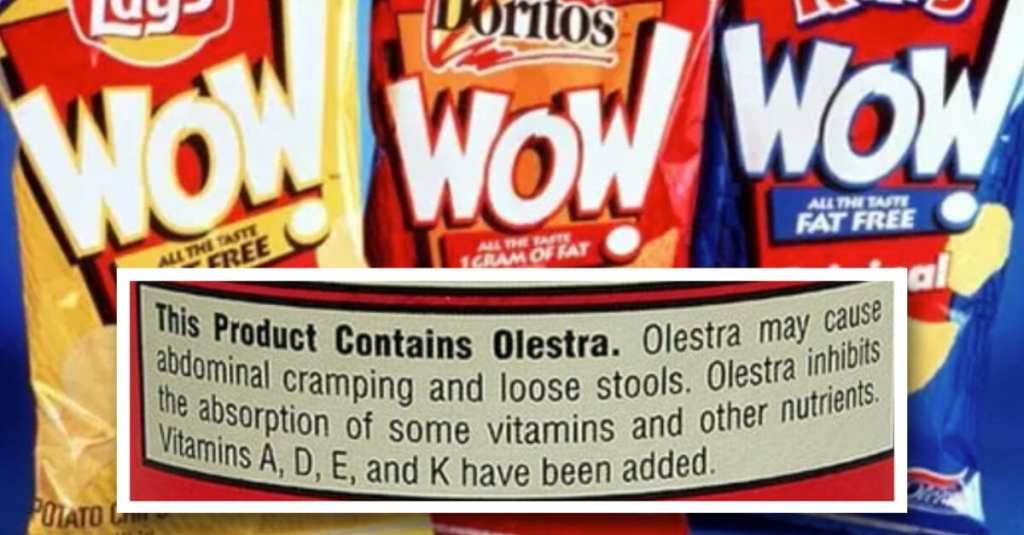As human beings, we like to think that the people who make our food have our backs. We also like to think in the case that they might not, we have government agencies that will slap them on their wrists and save us from the gut aches that could have ensued.
To know that’s not true, though, all we have to do is remember a little thing in the 90s called Olestra.
When the FDA first announced they had approved a miraculous new fat substitute that could be used to let us eat crap food like potato chips without the worry over gaining weight.
They were soon singing a different tune, because the complaints about bowel distress began rolling in by the hundreds. They were all similar to this one, which surely gave the FDA as many reasons to laugh as to scramble for cover.
“37-year-old woman reported severe diarrhea, fecal urgency, and abdominal cramps after eating Original and Sour Cream and Onion Fat Free Pringles.
She was driving when the pain started and could not get off the road in time to get to the bathroom before the diarrhea began.
She had 5 children in her van who were frightened.”
Olestra actually wasn’t new, despite Americans just being introduced to it and all of its side effects. It was invented by Procter and Gamble in the 1960s as a way to deliver fat to underweight babies.
Only problem? It didn’t work at all.
In fact, they’d invented a fat that the human body was incapable of absorbing, which should have been cause for concern. Instead, the money men at P&G to see nothing but dollar signs. Because a fat we can’t absorb is a fat that makes things delicious AND essentially fat free.
The people at the FDA poo-pooed the approval process, though, mostly because they worried a “fat free” label would encourage Americans – who we all know have little to no ability to practice moderation – to eat like, bags of junk food in one sitting.
There were, though, a small percentage of test subjects reported the kind of digestive distress that couldn’t be contained – or held off.

Image Credit: Procter & Gamble
Still…the money.
Procter & Gamble kept trying until 1996, when the FDA finally relented – with one condition. All products that included Olestra had to contain a prominent label that warned about abdominal cramping, fecal incontinence, and loose stools.
And y’all…they put that shizz right on the bag and still, people could not get enough. They wanted to be able to eat potato chips whenever they wanted so much that they figured, “how bad could a little diarrhea be?”
Spoken like a bunch of people who have never had actual food poisoning, if you ask me.
Frito-Lay’s line of WOW! chips – Doritos, Lays, Ruffles, and Tostitos – flew off shelves. They made $340 million in the first year. People wanted those “low-fat alternatives” in their lives, anal leakage or not.
At least, that’s what they thought until it started happening in their very own bathrooms.
Or, perhaps more truthfully, anywhere but their bathrooms – so often that people accused P&G of conspiring to boost their toilet paper sales with the oily, orange discharge that came from their chips.
The FDA received over 20,000 complaints, most than every other food additive in history combined. A report from the Center for Science in the Public Interest (CSPI) called the complaints “grisly,” citing several examples of people who ended up in the hospital.
They also noted that “victims reported fecal incontinence while driving, shopping, exercising, dining out, or at other inconvenient or potentially dangerous times.”
No one over the age of three enjoys crapping their pants, y’all. Just no one.
The FDA and Procter & Gamble didn’t see how this happened, since all of the approvals were based on the assumptions that Americans would eat only a “reasonable” amount of chips in a serving – specifically, less than 7 grams of Olestra per day.
That adds up to 8 potato chips, y’all, as if anyone in the history of ever has eaten only eight potato chips in a day.
A regular serving of Lays is like, 15 chips.
Still, P&G stammered that only a small (sometimes up to 30%) of customers were experiencing those negative effects.
Unsurprisingly, it didn’t go over well. People don’t really enjoy being told after the fact that they were rolling the dice on soiling their underpants in public.
The FDA and P&G eventually had to discontinue the product after their own studies showed that up to 9% of their customers experienced “anal oil leakage.”

Image Credit: Frito-Lay
I’m sorry, but even people who really, really want to lose weight are not going to be ok with that.
At that point sales had totally tanked, and there was probably no way to save the product anyway. Americans might be dumb, and they might want to be skinny and eat bags of potato chips, but we really don’t want to have to sneak out of a party before anyone figures out where that smell is coming from.
Then again, if they served a whole bunch of chips, it really could have been coming from anyone.
In some ways, it’s nice to know that Americans do have a line they’re not willing to cross, don’t you think?






